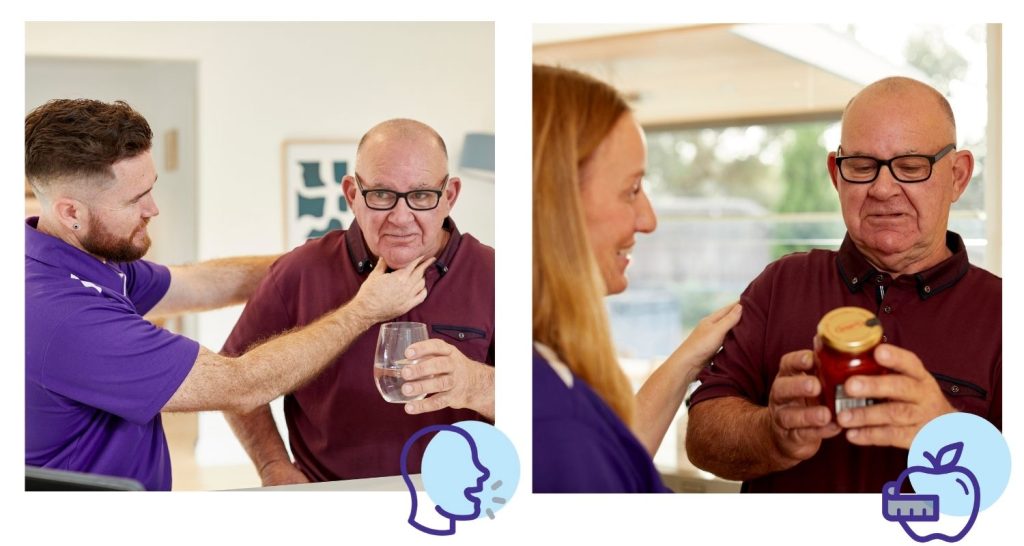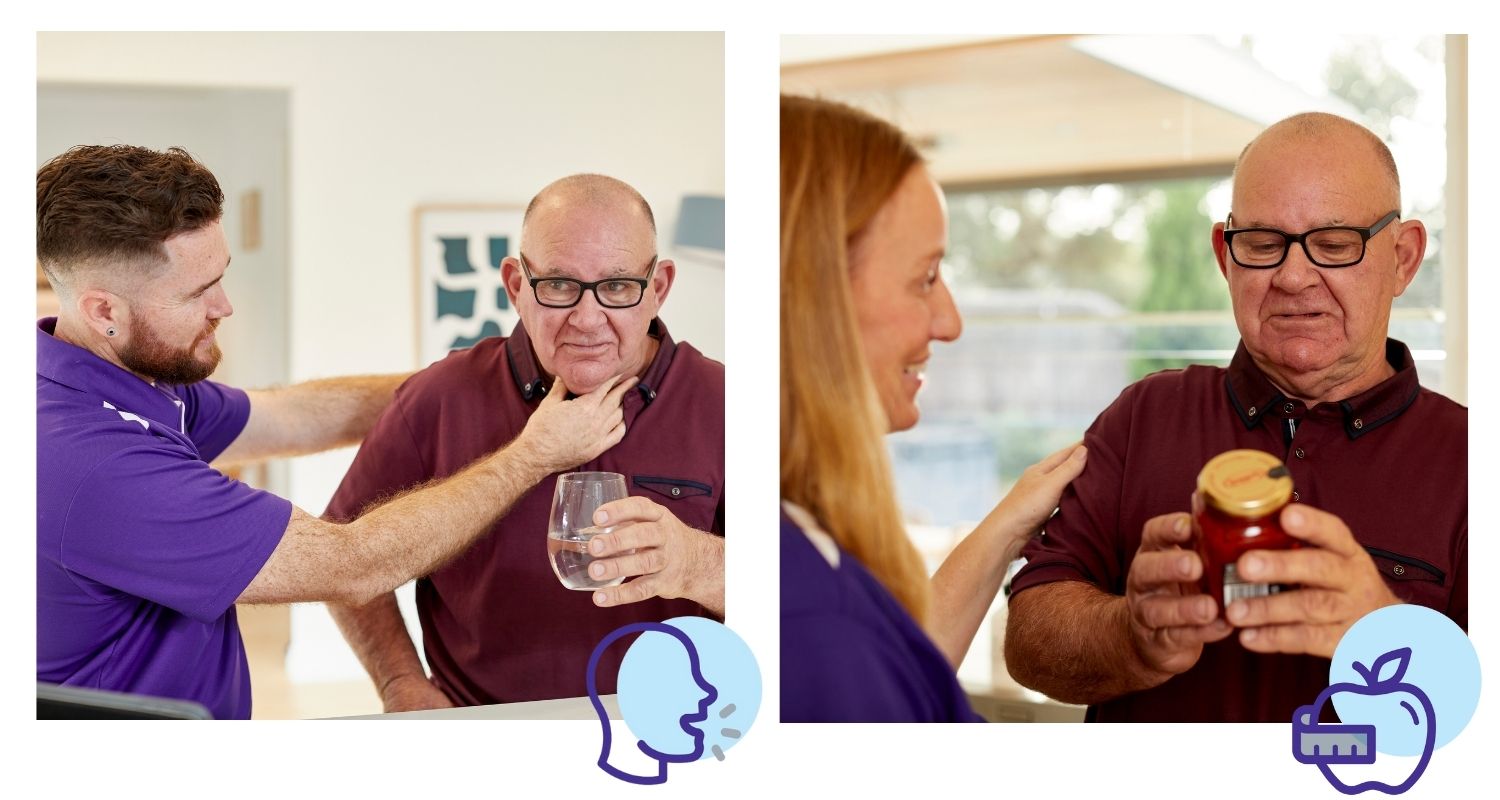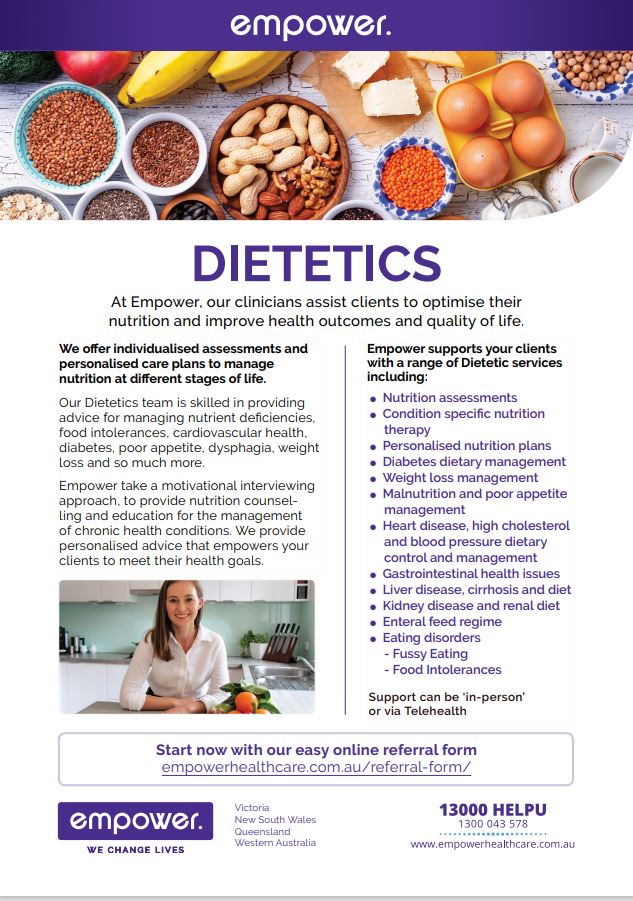Speech Pathologists and Dietitians work together to help people with Dysphagia
Dysphagia is the medical term for ‘difficulty in swallowing’. Causes of dysphagia are any condition or event that weakens, damages, or removes the muscles, nerves, and/or other structures used for swallowing.
A person’s quality of life and ability to maintain adequate nutrition and hydration is impacted by Dysphagia. Speech Pathologists and Dietitians work together with a multidisciplinary (MDT) approach to ensure quality outcomes for the people they care for.
Swallowing Assessment
It is the role of a Speech Pathologist to trial different food textures and conduct an oral motor examination to better understand how a person is chewing and swallowing their foods.
The person with Dysphagia may be have long meal times which are fatiguing and therefore unable to consume enough nutritional content or they are aspirating on their food and drink. Aspiration means food is emptying into the lungs rather than into the oesophagus to the stomach.
To assist these clients, we can make recommendations to modifying the texture of their food and drink as well as implementing some the safe swallowing strategies such as
- small frequent meals
- reducing distractions during mealtimes
- building meal time routines
Nutritional Assessment
Following a swallowing assessment from a Speech Pathologist, a Dietitian will assess a person’s nutritional status and work with them to maximise their nutrition.
It is well known that Dysphagia significantly increases the risk of poor nutritional status. This results in malnutrition, dehydration, and the social and psychological impacts on both the person and carer. A Dietitian will work closely with a Speech Pathologist to implement suitable food and fluid consistencies, otherwise known as texture-modified diets. Usually, a Speech Pathologist will recommend a texture modified diet that is safe to be consumed by the person, whilst a Dietitian will provide support to optimise food and fluid intake whilst adhering to the required consistencies.
Person centred care ensures the social and psychological impacts of such diets are reduced, and that individuals can preserve the enjoyment of eating and drinking as much as possible. These considerations are important in preserving quality of life and the independence of an individual.
MDT Approach
If someone is unable to obtain enough nutrition or hydration from a texture-modified diet, a Dietitian may recommend other methods to improve their nutrition, such as oral nutrition supplements. Again, a Dietitian will consult with a Speech Pathologist to ensure the consistency of such beverages are safe for the person.
If oral nutrition supplements are not successful or swallowing ability further deteriorates, both the Dietitian and Speech Pathologist may recommend that a person receive their nutrition and hydration through tube feeding. In contrast, when someone is receiving nutrition via tube feeding and it may be possible for an individual’s swallowing to improve, a Dietitian and Speech Pathologist will work closely to assist in transitioning the person to an oral diet.
The multidisciplinary approach of Speech Pathologists and Dietitians in a community care setting ensures the needs of those with dysphagia are met.
Through collaboration and acknowledging the expertise of the other discipline, both Dietitians and Speech Pathologists provide individualised care and positively influence not only the health, but well being of those living with Dysphagia.
MORE BLOGS
Meet Speech Pathologist Sharon
Simply click on the image below for our referral form.
















